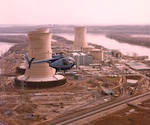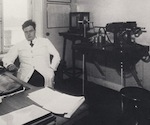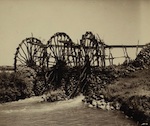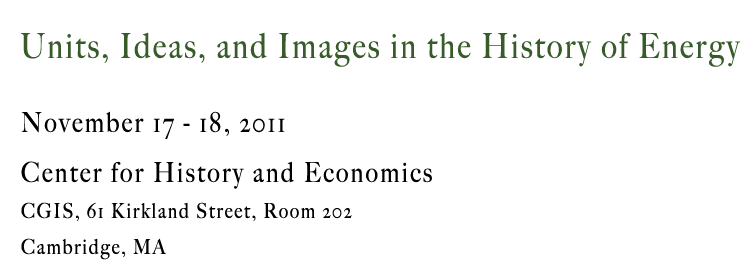





Participants
Daniel A. Barber is a term assistant professor of Architecture at the Barnard and Columbia Colleges Architecture Program at Columbia University. An interdisciplinary historian whose work analyzes the cultural, technological, and bureaucratic affinities between the history of modern architecture and the emergence of environmentalism, he is currently working on the role of architectural technologies in the infrastructural and territorial transformations of the immediate post-World War II period in the U.S., with an emphasis on the design of solar houses and the role of buildings in mitigating challenging climatic conditions.
Casey P. Cater is a Ph.D. candidate in History at George State University and an instructor in the Department of History and Philosophy at Kennesaw State University. His dissertation, titled “Generating the New South: Electricity and the Making of Modern Georgia,” examines several elements integral to the process of electrification in the U.S. South between the late-nineteenth and the late-twentieth centuries.
Finis Dunaway is an associate professor of History at Trent University, where he teaches courses in modern United States history, visual culture, and environmental studies. He is the author of Natural Visions: The Power of Images in American Environmental Reform and of articles in American Quarterly, Environmental History, Raritan, and other journals. He is writing a book tentatively titled Seeing Green: Visual Media and the Making of American Environmentalism, which is under contract with the University of Chicago Press.
Marc Landry is a Ph.D. candidate in History at Georgetown University. He holds a Masters in German and European Studies from the same institution, and has conducted extensive research in Germany. He is now finishing up his dissertation, a history of Alpine water power or “white coal” in Europe from 1870-1955.
Joe Lawson is a post-doctoral research fellow at the Institute of Modern History, Academia Sinica, Taiwan. His Ph.D. focused on local government, developmental policy, and the construction of Xikang province in early-twentieth-century China. He is currently working on Chinese agronomy in the late Qing and Republican periods.
Lisa J. Powell is a Ph.D. candidate in American Studies at the University of Texas at Austin. Her research and teaching interests include environmental studies, cultural geography, agriculture, and American civilization. She is currently completing her dissertation, titled “Coal and Corn: Landscapes of Mining and Agriculture in Western Kentucky.”
Victor Seow is a Ph.D. candidate in History and East Asian Languages at Harvard University. He specializes in the social and economic history of China and Japan from the nineteenth century to the present. His dissertation, titled “Coal Capital: Japan’s Empire of Energy in Northeast China,” explores the development of the Japanese-owned and -operated energy enterprise in Manchuria in relation to the circulation of resources, technologies, and expertise.
Jeffrey Womack is a Ph.D. candidate in History at the University of Houston. His M.A. research, which focused on NASA’s failed Solar Power Satellite program, appears as a chapter in Robert Lifset’s forthcoming book on the energy crisis. His current research focuses on the history of nuclear medicine and its impact on modern life.
David Zylberberg is a Ph.D. candidate in Environmental History at York University in Toronto, Canada, with a focus on eighteenth- and early-nineteenth-century Britain. His main interests are in energy, its production, transportation, and relationship to cooking. He is currently working on a dissertation titled “Plants and Fossils: Household Fuel in Hampshire and the West Riding of Yorkshire, 1750-1830.”